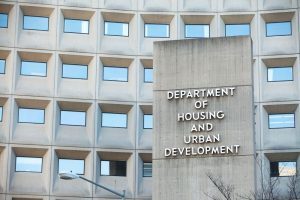
The U.S. Department of Housing and Urban Development (HUD) announced initiatives to reduce associated risks with cash-out refinance lending.
Changes are aimed to help preserve the homeowners’ ability to convert home equity to cash through government-sponsored mortgages, but also improves the risk profile of HUD’s housing finance programs.
The Federal Housing Administration (FHA) will lower its maximum loan-to-value (LTV) requirements for cash-out refinance transaction from 85% to 80%. Changes to the policy will be effective for loans with cash-out LTV allowed by the GSEs.
Also, Ginnie Mae is taking further action to manage risks associated to “loan churning” among mortgages insured by the VA. HUD states that serial refinancing has proved to deplete home equity and wealth for veterans with VA-insured mortgages and harmed investor confidence in mortgage-backed securities guaranteed through Ginnie Mae.
“We are taking another important step to support sustainable homeownership that builds wealth for families,” said FHA Commissioner Brian Montgomery. “This is a prudent measure to make certain that we protect and preserve the home equity borrowers are building for their futures and guard against taxpayer losses from the FHA program.”
Acting Ginnie Mae President Maren Kasper said the changes reaffirm the GSEs commitment to ensuring the agency’s policies allow homeowners to borrow properly.
“Additionally, this policy provides global investors with increased certainty in the performance of the Ginnie Mae security, which ultimately lowers mortgage rates for all borrowers served by our program,” Kasper said.
Taking advantage of the low mortgage rates in today’s market means big money for those who refinance. A report by CNBC in July revealed that the average borrower could save about $266 per month, which could bring potential savings to about $2.2 trillion.
Those eligible for refinancing increased by 6.3 million since last November when rates were more than 5%. CNBC stated that about 1.5 million borrowers, or roughly 35% of those who took out loans last year, could benefit from lower mortgage rates and refinancing.

 theMReport.com Your trusted source for mortgage banking news
theMReport.com Your trusted source for mortgage banking news








